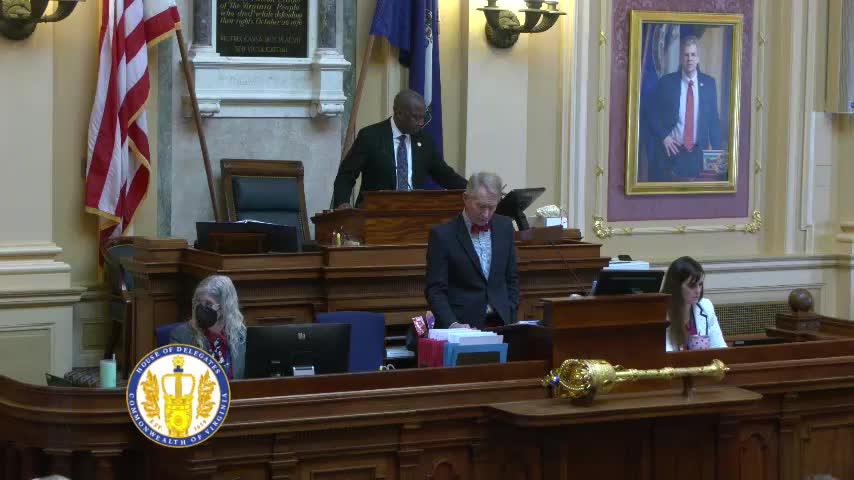Delegates clash over whether many bills were denied hearings as session nears deadlines
Get AI-powered insights, summaries, and transcripts
Subscribe
Summary
Members of the Virginia House of Delegates spent a lengthy portion of Friday’s session disputing whether committee chairs and leaders have denied hearings to large numbers of bills, with Republicans saying dozens of their measures were never docketed and Democrats saying committees prioritized bills with a realistic path to law.
Members of the Virginia House of Delegates spent a lengthy portion of Friday’s session disputing how the chamber’s committees have been handling requests for hearings as the General Assembly’s deadlines approach.
The disagreement opened during the morning hours when Delegate Matt Griffin (R-Bedford) asked to return to the “first morning hour” for motions, a procedural request that preceded a round of personal-privilege speeches focused on committee process. Delegate Paul E. D. Earley Jr. (R-Chesterfield) argued that many bills filed by Republican members “were denied a hearing,” saying the result was that “constituents who sent us here are denied a voice.” Earley told colleagues that more than “nearly a 50” Republican bills “were not even heard in committee.”
Democrats on the floor responded. Delegate Marcus Simon (D-Fairfax) said the majority’s committee chairs prioritized bills that have a realistic chance of becoming law and that committees “spent our time in committee focusing on those bills that had a chance of becoming law.” He described the process as time-management in a short session. Delegate Levar Stoney Watts (D-Fairfax) and others defended the scheduling choices and said the committee process this year gave victims and other affected parties appropriate time to testify where needed.
Other speakers described specific bills that they say did not receive hearings. Delegate Michael Freitas (R-Culpeper) listed examples including bills to protect first responders from reckless exposure to fentanyl, measures to strengthen statutes on child abuse, and proposals to increase penalties for solicitation so as to reduce human trafficking demand — and said those were among bills “that didn’t get a hearing.” Delegate Sally Garrett (R-Buckingham) told the chamber she had carried House Bill 20 81, which would have amended the Virginia Human Rights Act to ban discrimination based on race, and said it had not been docketed for a hearing two years in a row.
Several Democrats pushed back that many priorities of the majority — for example, bills about collective bargaining, voting rights protections, and public-health proposals — were in committee and received consideration. Delegate Dawn M. Cohen (D-Fairfax) said, “Some things just don’t make the cut,” and listed priorities that Democrats had advanced this session.
Republican speakers framed the issue as denying constituents a voice. Delegate Jason Freitas said he had chaired subcommittees where he ensured time for testimony and argued that the refusal to docket bills is a departure from the deliberative process. Multiple speakers on both sides asked that members judge bills on their policy merits rather than patron party.
House leaders did not make a formal change to committee assignments or to the handling of pending bills during the remarks. Throughout the exchange, speakers repeatedly asked the chamber to prioritize hearings or defend existing scheduling, and several members urged patience until the final committee deadline on Monday, Feb. 17.
Why it matters: committee-docketing decisions determine whether bills can be debated, amended and reach the floor. As the session’s deadlines approach, members on both sides framed the issue in terms of access for constituents and effective time management of committees.
Context and next steps: House clerks and committee chairs will continue meeting through Monday’s committee deadline; conferee appointments and conference committee activity were announced later in Friday’s session. No formal rules changes or procedural motions to override committee chairs were adopted during Friday’s floor debate.
Ending: The exchanges concluded without a formal vote; members resumed the regular calendar and proceeded to consider third-reading and consent calendar items.
